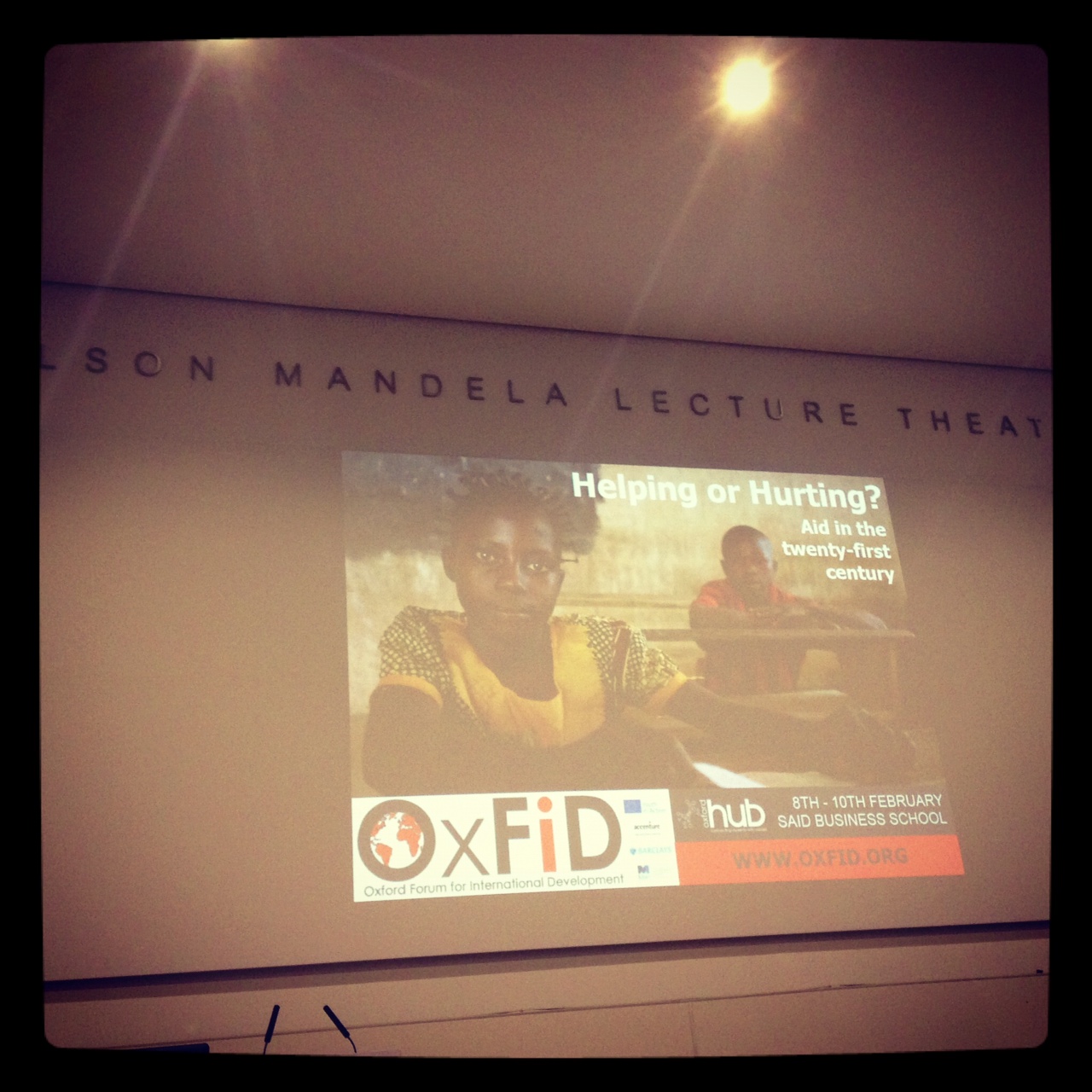By Daniel O'Hara
Return On Investment. To many that phrase brings to mind the corporate sector, with its insistence on low costs and high profits. Far fewer people would think of ROI in relation to international development – its focus on getting the best value for money perhaps seems at odds with development’s aims of getting the best value for people.
However, at the heart of many of the presentations at this week’s Oxford Forum for International Development (OxFID), run between 8th-10th February, was this basic premise – that if development projects are to be effective, we must have effective ways of measuring their results, their impact and, essentially, their returns. Where the development sector differs from the private sector is that these returns are measured not financially but in a myriad of ways.
So the question the speakers at OxFID often tried to address was not whether, but how, we should measure the success of aid and international development. Renowned speakers from a range of development organisations, including the World Bank, Action Against Hunger and the Fairtrade Foundation, took interesting, and sometimes opposing, views on the best way to do this.
One perspective was given by Toby Ord, a philosopher from the University of Oxford and founder of Giving What We Can. Using global health as a marker Toby argued that aid works (on average). He pointed to quantitative measurement of the success of aid, showing that thanks to huge successes of programs like that to eliminate smallpox, aid and development provided an extremely good return on investment.
However this perspective, that development successes could simply be measured in quantitative ways, was refuted by John Hilary, Executive Director of War on Want. His position that “development is not technical but political” meant that real development progress could only be made if change was implemented at the political level. This required a change in the way development success was measured where the nuances of power and politics were taken into account.
Coming from a different perspective, Barbara Crowther at the Fairtrade Foundation provided very precise measures by which development success could be measured. Whilst she provided some anecdotal evidence of the impact that Fairtrade was having, her talk was founded on the returns that farmers had seen thanks to the organisation’s work. These numbers showed real progress being made – with £20.5m generated in premiums in 2012 for farmers from sales in the UK.
These perspectives all painted differing images of how we measure success in aid and international development, and highlighted that measurement should be contextual. What was agreed on by all speakers was that measurement is necessary, and that returns, however they are calculated, must be calculated. Vijeyandra Rao from the World Bank
summed it up neatly when he said that measurement and monitoring are essential, but most important are changes on the ground. Projects which can create and measure these are where development must focus going forward.

